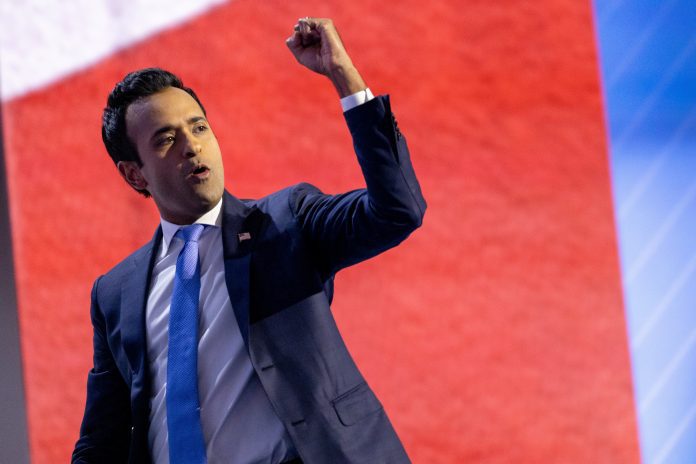As co-lead of the Department of Government Efficiency (DOGE) in the upcoming Trump administration, Vivek Ramaswamy is making waves by emphasizing cuts to government spending. However, he remains cautious about revealing the full scope of his targets.
At the CNBC CFO Council Summit in Washington, D.C., Ramaswamy shared preliminary insights into DOGE’s priorities. He specifically addressed what he perceives as the Biden administration’s “last-minute spending sprees,” which include notable initiatives such as the Inflation Reduction Act (IRA) and the CHIPS Act.
For example, Ramaswamy pointed out a recent $6.6 billion loan to Rivian Automotive, which he characterized as potentially unjustifiable and unlikely to be repaid. He indicated that the actions of the Biden administration in the final days of its term could be viewed as a breach of fiduciary duty, especially when financial decisions are made quickly or without sufficient oversight.
Ramaswamy also referred to a $7.54 billion loan announced by the U.S. Energy Department to support the development of two lithium-ion battery plants for EVs in Indiana. This project is a joint venture between Stellantis and Samsung SDI. He argued that such deals should undergo “special scrutiny” and compared them to situations where a CEO and CFO approve significant expenditures shortly before leaving their positions.
“These deals warrant careful examination,” Ramaswamy stated, highlighting the importance of transparency and oversight in any last-minute financial commitments, particularly those made through executive authority.
Ramaswamy highlighted potential conflicts of interest related to Elon Musk. He explained that Musk’s involvement with DOGE and Tesla—both competing for government contracts—could attract increased scrutiny regarding these connections. In response, Ramaswamy emphasized the importance of transparency and accountability in all decisions, instilling a sense of reassurance in the audience about the integrity of the new government efficiency agency.
DOGE’s Mission and Strategy
Ramaswamy outlined the mission of the DOGE, which will auto-delete in 18 months on July 4, 2026. The agency will primarily focus on identifying and eliminating government waste and fraud through initial, impactful achievements and a strategic yet proactive approach. He expressed a sense of urgency, stating that DOGE will prioritize the most critical areas to ensure immediate and tangible improvements.
However, Ramaswamy avoided the temptation to “cherry-pick” issues too early, emphasizing the significance of strategic planning and maintaining a broader vision prior to the agency’s official start date on January 20. “We want to address the most important issues first and build upon those foundation steps,” Ramaswamy explained.



